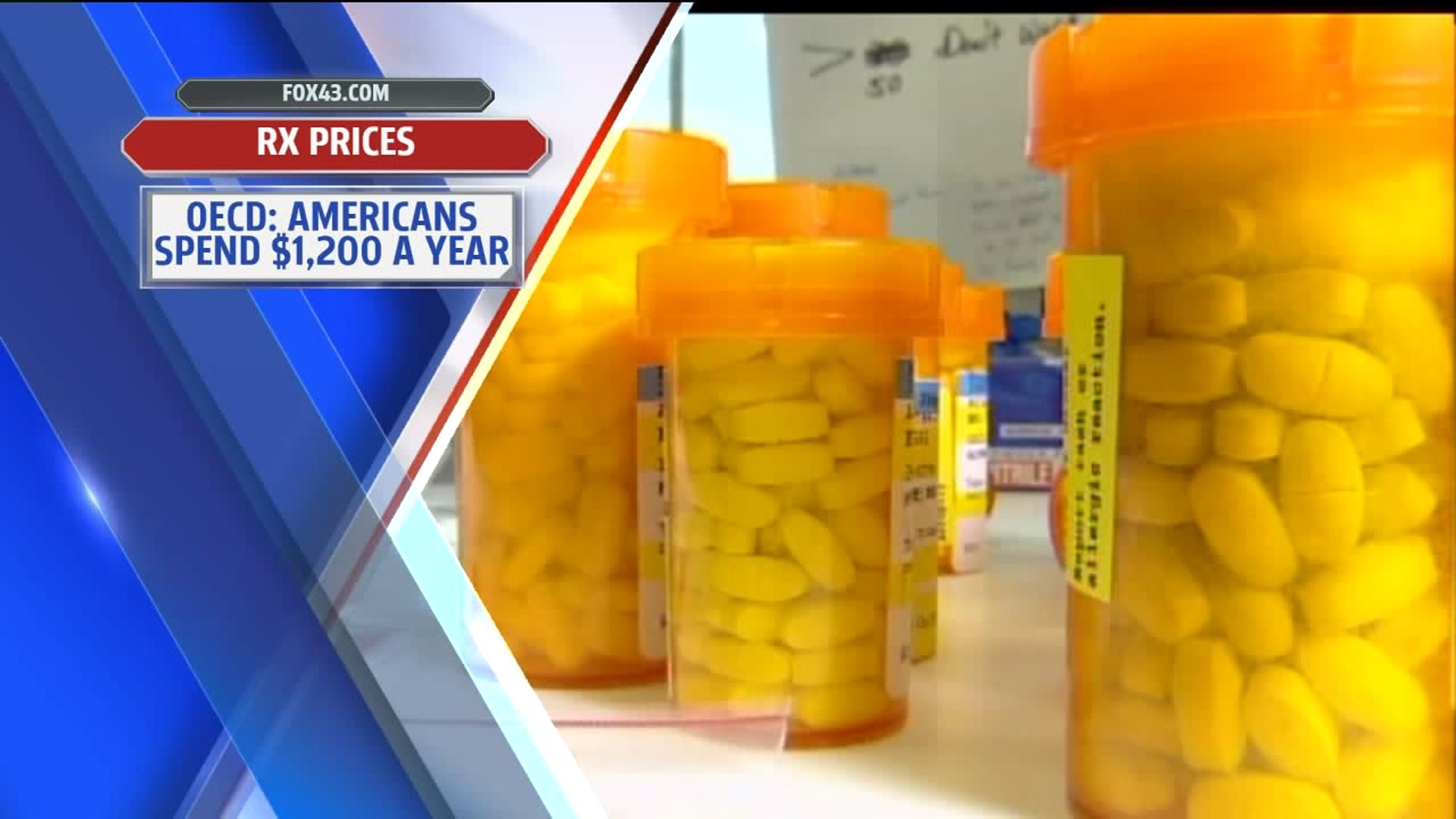The cost of prescription drugs for all kinds of medications is taking a heavy toll on the average American's wallet, and officials appear divided on how to stop them from rising.
Data from The Organization for Economic Cooperation and Development shows the cost of all prescription drugs rose by 30% between 2010 and 2019, with the average American spending about $1,200 on prescription drugs every year. At the beginning of 2019, pharmaceutical companies raised the list prices of hundreds of prescription drugs by an average of 6.3%, that's according to The Wall Street Journal.
Drugs for cancer treatment may make the biggest dent, costing about $10,000 a month.
Pharmaceutical companies claim innovation and new improvements are behind those climbing costs. But a study published in Health Affairs shows companies are raising the price of drugs that are already available. "Research and development is only about 17% of total spending in most large drug companies," Prof. Gerard Anderson of Johns Hopkins University told NPR. "Once a drug has been approved by the FDA, there are minimal additional research and development costs so drug companies cannot justify price increases by claiming research and development costs."
Professor Anderson said raising the costs of those drugs is largely to the benefit of health insurers and drugmakers.
The study did not look at what's driving the rising price of existing drugs, but the researchers pointed to a lack of regulations and competition.
Pennsylvania Auditor General Eugene Depasquale claims manufacturers' rebates are also a big factor. According to a special report his office released in February, 2019, rebates can drive the cost of prescription drugs up by as much as 30%, because the manufacturers just set a higher starting list price.
"Rebates are passed on behind the scenes between drug manufacturers, pharmacy benefit managers, and insurance providers," he said at a press conference. "and the innocent victims in this are the independent pharmacists and the consumers that are paying the costs."
Depasquale also said rebates sometimes help government insurance programs, like Medicaid, save money. That's why he didn't call for the rebates to be discontinued. He did say the middlemen between drug makers and pharmacists should be paid a flat fee, instead of getting a percentage of the drug price.

